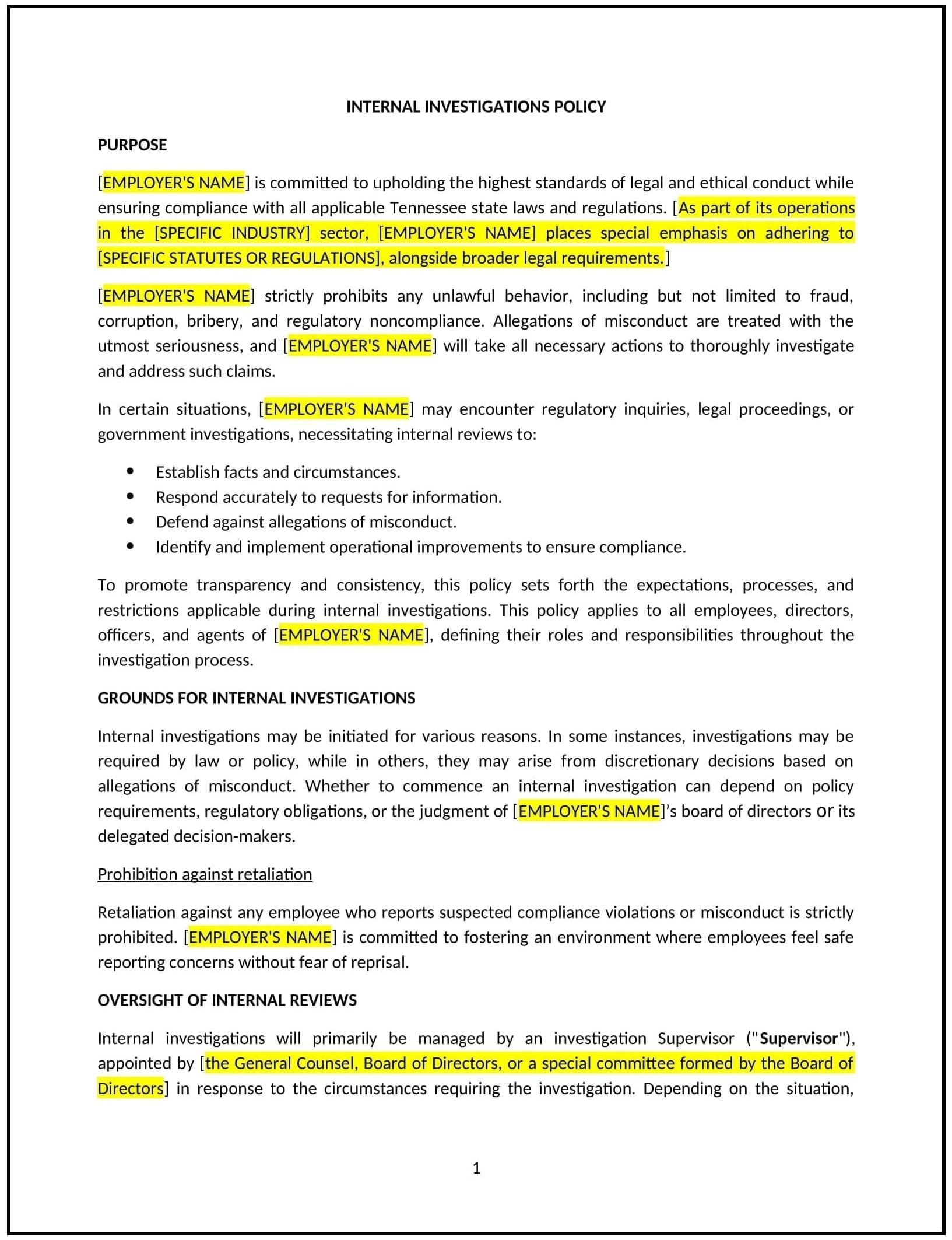Internal investigations policy (Tennessee): Free template
Got contracts to review? While you're here for policies, let Cobrief make contract review effortless—start your free review now.

Customize this template for free
Internal investigations policy (Tennessee)
This internal investigations policy is designed to help Tennessee businesses establish guidelines for conducting fair, thorough, and confidential investigations into workplace issues, such as misconduct, harassment, or policy violations. It outlines procedures for initiating, conducting, and resolving investigations.
By adopting this policy, businesses can ensure accountability, protect employee rights, and maintain a fair and transparent workplace.
How to use this internal investigations policy (Tennessee)
- Define investigation scope: Specify the types of issues that warrant an internal investigation, such as harassment, theft, or safety violations.
- Set investigation procedures: Outline steps for initiating and conducting investigations, including evidence collection and witness interviews.
- Address confidentiality: Ensure all investigations are conducted confidentially to protect the privacy of involved parties.
- Establish resolution protocols: Provide steps for resolving investigations, such as disciplinary action or policy updates.
- Train investigators: Educate HR staff or designated investigators on conducting fair and unbiased investigations.
- Review and update: Assess the policy annually to ensure it aligns with evolving business needs and legal standards.
Benefits of using this internal investigations policy (Tennessee)
This policy offers several advantages for Tennessee businesses:
- Ensures accountability: Demonstrates a commitment to addressing workplace issues fairly and transparently.
- Protects employee rights: Ensures investigations are conducted confidentially and without bias.
- Maintains trust: Builds employee confidence in the business’s ability to handle issues appropriately.
- Reduces risks: Minimizes the potential for legal disputes or reputational damage.
- Aligns with best practices: Supports a structured approach to workplace investigations.
Tips for using this internal investigations policy (Tennessee)
- Communicate the policy: Share the policy with employees and include it in the employee handbook.
- Provide training: Educate HR staff or designated investigators on conducting fair and unbiased investigations.
- Monitor compliance: Regularly review investigation processes and outcomes to ensure adherence.
- Address issues promptly: Take corrective action if investigations are mishandled or delayed.
- Update regularly: Assess the policy annually to ensure it aligns with evolving business needs.